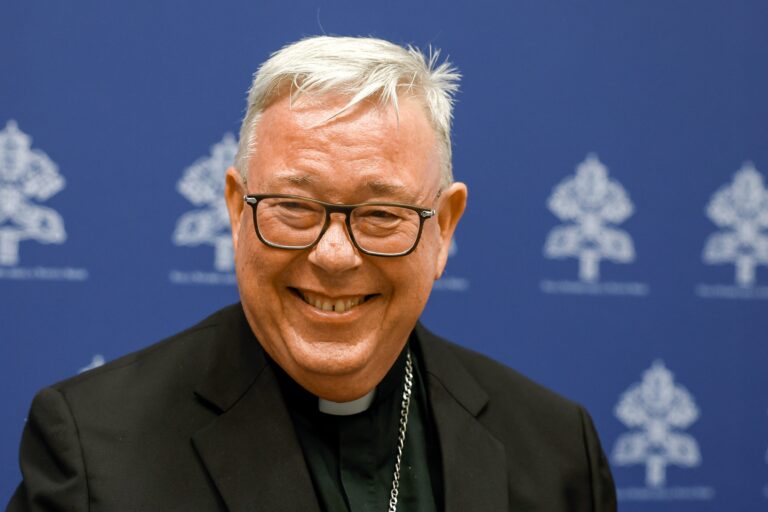Luxembourg Cardinal Jean-Claude Hollerich and Bishop Bertram Meier of Augsburg have warned against expecting too much progress on reform from the World Synod starting in Rome in October.
Speaking in the Catholic podcast “Himmelklar” on Wednesday, Hollerich referred above all to expectations regarding the ordination of women and pastoral care for homosexuals.
These topics were central to the Synodal Path reform process of the Catholic Church in Germany but were less wanted in other countries, the cardinal said. As the so-called “Relator General”, he is largely responsible for the preparation and implementation of the Synod.
Disappointed
“The Church will have to find answers to these questions,” he added. “But it won’t all happen in this Synod. One must not overload it with expectations; otherwise one will be disappointed.”
At the same time, Hollerich urged all participants to be open and willing to convert. “If I go in with the point of view: I already know everything – then I don’t listen, then I can’t make a discernment of spirits.”
Bishop Bertram Meier of Augsburg also warned against exaggerated hopes for reform. “I want to avoid disappointment by dampening hopes,” he told the Augsburger Allgemeine newspaper on Wednesday. “There will be no decisions on reform issues at this meeting of the World Synod as we have in Germany.”
After the Synod, Pope Francis would presumably draw up a list of priorities with his inner circle of colleagues for the following meeting in 2024. “In the end, he will decide on possible reforms,” said Meier.
Failure
Nevertheless, the World Synod would not be a failure “even if not all our Synodal Path resolutions are dealt with, let alone positively decided upon”, the bishop continued. “It would be advisable to slow down a bit – too much change gets us in Germany and at the level of the Universal Church in trouble.”
There were big differences in pace within the Universal Church, Meier noted. This applied, for example, to the question of blessing same-sex couples. Such ceremonies would be opposed in an African country, for example. “There, we as a Church must first fight to ensure that homosexuality is not punished with the harshest state penalties.” A German reform resolution could not simply be transferred to the Universal Church.
Ordination of women
Meier said he would also be taking issues to the Synod that reform-oriented groups had recently cited in letters to him, such as the ordination of women as priests and steps to combat clericalism. “I will also take these concerns with me and bring them into the Synod. But I will not act as a lobbyist for these issues,” the bishop stressed.
He said it was interesting that, unlike in the past, there would be no discussion groups held in German at this Synod of Bishops. He himself would be part of a group that would speak Italian. “I see this as an urgent invitation from Rome that we Germans should get better involved worldwide and explain our ideas.” He said he did not perceive this as Roman criticism of German demands for reform, but as a “chance to put ourselves out there”.
The World Synod convened by Pope Francis for October 2023 and October 2024 will focus on new ways of involving the grassroots of the Church in important decisions in the Catholic Church. Non-ordained men and women will also have the right to vote. Ultimately, the Pope will decide on possible resolutions.
*Originally reported by KNA Germany.



